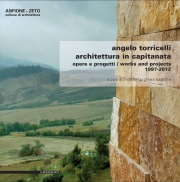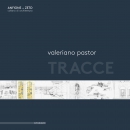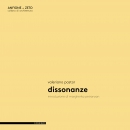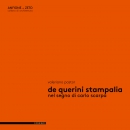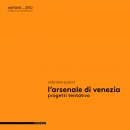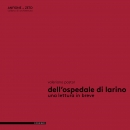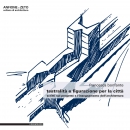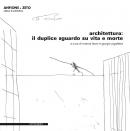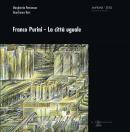«Quello della città – scrive Angelo Torricelli – è un tema decisivo, ma si configura come terreno di confronto credibile e praticabile solo quando si escludano nozioni generiche e, per contro, si entri nel merito di specifiche città, di paesaggi intesi come individui». In realtà non avviene di frequente che a un progettista sia concessa l’opportunità di operare, alle diverse scale, su un centro urbano o su un territorio più vasto, con il quale mantenere negli anni un rapporto privilegiato. In questo senso, l’esperienza di Torricelli in Puglia, nella zona della Capitanata, avviata nel 1995 e tuttora in corso, rappresenta il campo ideale per sottoporre alla prova dei fatti lo studio sull’architettura come interpretazione della città, sviluppato nel corso di molti anni con un intreccio produttivo fra teoria e pratica, ricerca e didattica. Qui Torricelli ha potuto operare secondo la convinzione che la ricerca progettuale debba interpretare il tempo e che l’architettura vada pensata in quella sorta di fissità – nel e oltre il tempo – proposta dal paesaggio mediterraneo, a prescindere dagli influssi provenienti da mode e tendenze.
Le opere e i progetti qui illustrati, a partire dal concetto di “appropriatezza”, interpretano il luogo e lo riscrivono, creando nuove “concatenazioni tra le cose” e instaurando un rapporto privilegiato con il suolo, archeologicamenteinteso; partendo dal dialogo costante sia con la tradizione del moderno sia con le tipologie locali, generano nuove “figure costruite” che presuppongono già in sé le tecniche necessarie al loro compimento. Il forte legame con il luogo e l’attenzione al dettaglio costruttivo conferiscono alle opere di Torricelli in Capitanata un valore paradigmatico, suggerendo preziose riflessioni non solo sul ruolo della composizione architettonica, ma anche sui compiti e sulla responsabilità civile dell’architettura.
In the words of Angelo Torricelli, «The city is a fundamental issue, but it is an area for comparison which is credible and practicable only when generic notions are excluded and one enters into the merit of specific cities, of landscapes seen as individuals». In reality it seldom happens that an architect gets the chance to operate at different levels on an urban centre or a wider area, with which he can maintain a privileged relationship over the years. In this sense, Torricelli’s experience in Puglia, in the area of the Capitanata, begun in 1995 and still ongoing, is the ideal testing ground for the study of architecture as an interpretation of the city, developed over a number of years with a productive interpenetration between theory and practice, research and teaching. Here Torricelli has been able to work on the basis of the conviction that the architectural research should interpret its own time and that architecture should be conceived in that sort of fixedness – in and beyond time – as suggested by the Mediterranean landscape, irrespective of any influences coming from fashions and trends.
The works and designs shown here, starting from the concept of “appropriateness”, interpret the place and re-write it, so as to create new “concatenations between things” and establishing a privileged relationship with the soil, in an archaeological sense. Starting from the constant dialogue both with the tradition of the modern and with local typologies, these projects generate “constructed figures” which in themselves already presuppose the necessary techniques for their realisation. The strong link to place and the attention to construction detail give the works of Torricelli in the Capitanata the value of a paradigm, suggesting valuable reflections not only on the role of the architectural composition, but also on architecture’s purpose and its civic responsibility.

